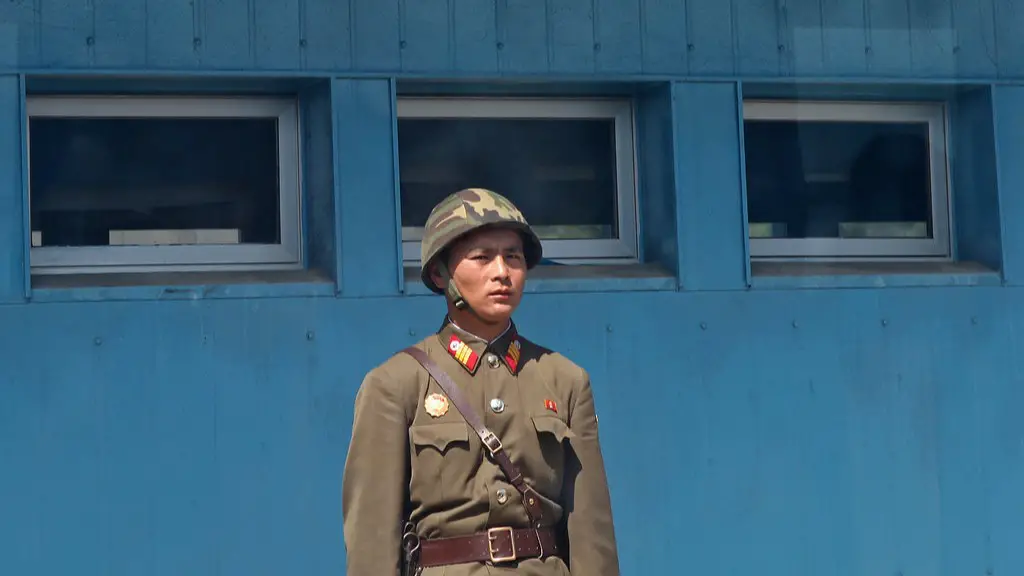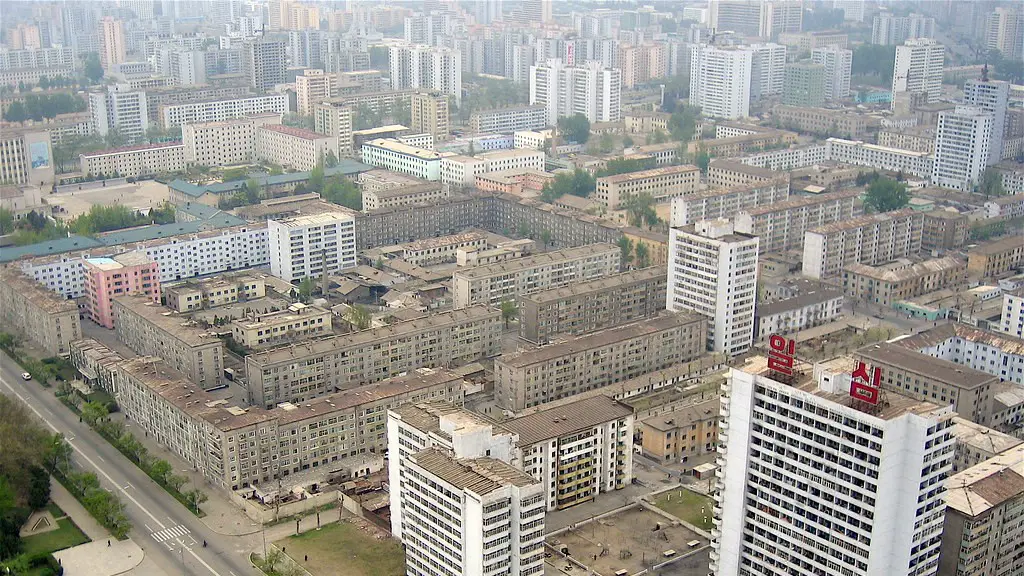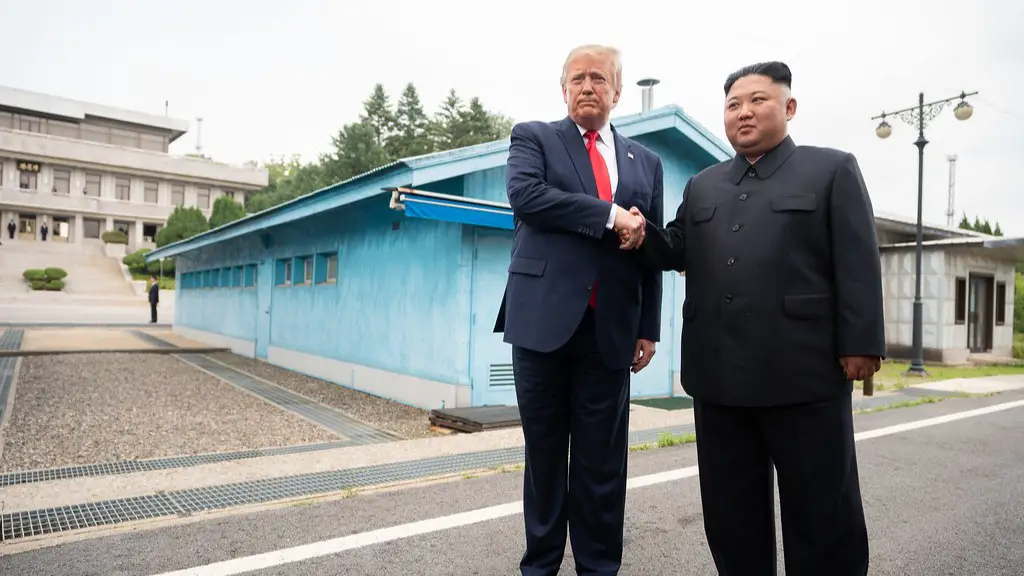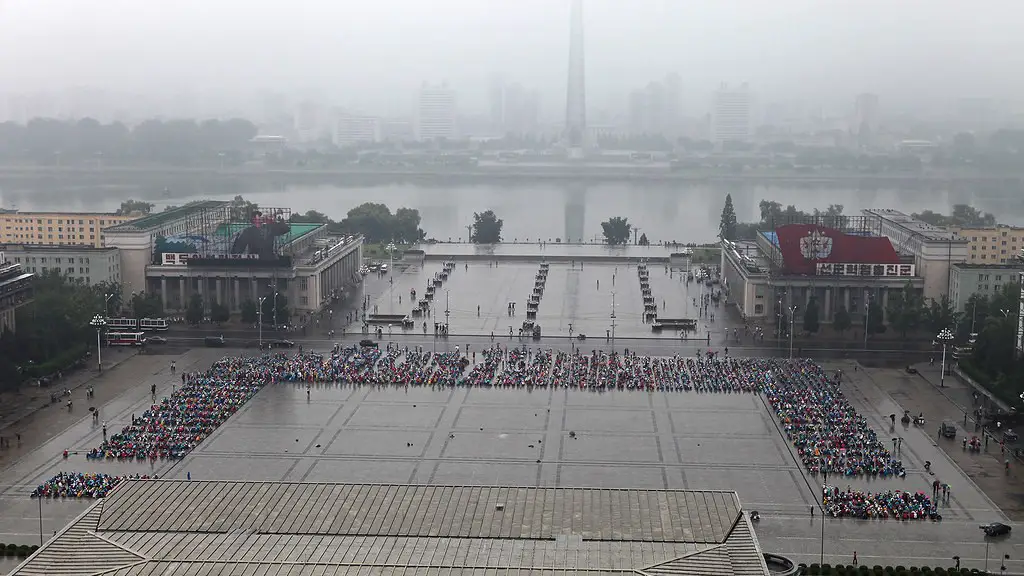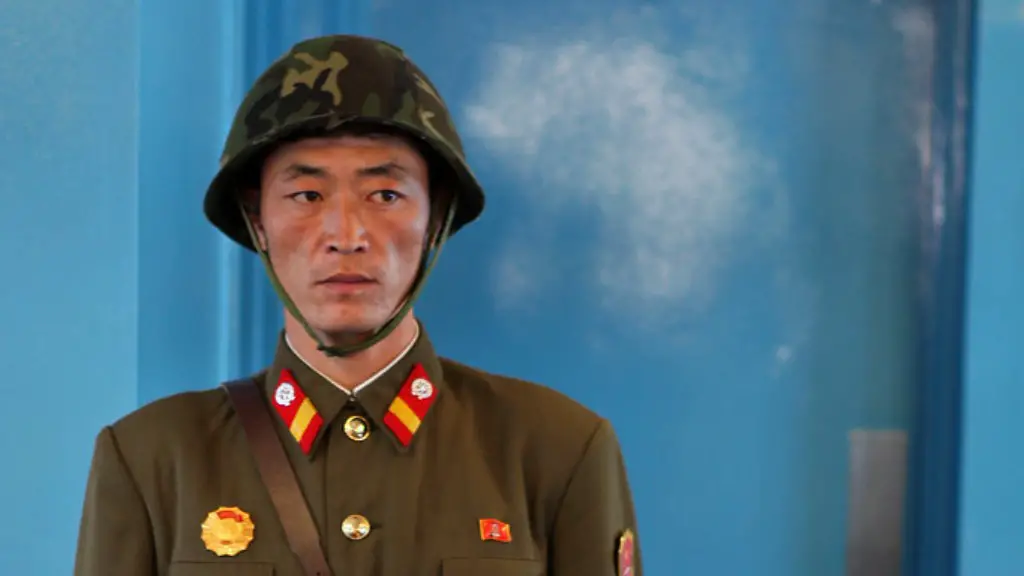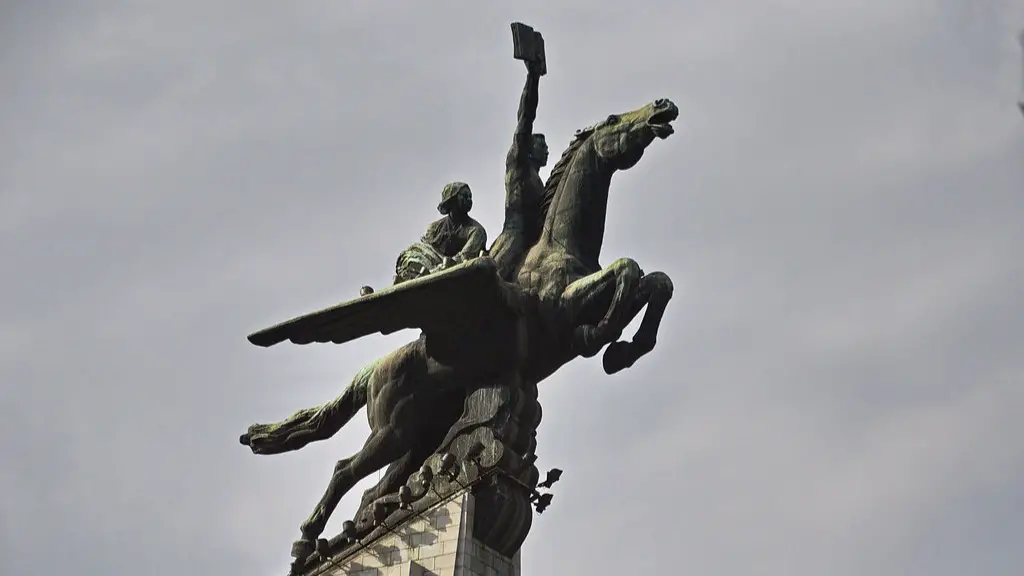North Korea is a mysterious closed country in Asia, with an autocratic leader and an obsure political situation. The international media is filled with stories and debates on what type of government the North Korean people live under. To answer this question, it is important to understand the background of North Korea’s political system and the measures they take to switch from an international pariah state to one of the world’s most powerful nations.
Since the Korean War in 1953, North Korea is an independent socialist state led by the ruling Workers’ Party of Korea. According to the recent constitution of North Korea, it is an absolute, one-party dictatorship, founded under principles of self-reliance, egalitarianism, and nationalism. The president and leader of the ruling party, Kim Jong Un has absolute control over the government, the military and all other civil affairs.
Aside from the president, North Korea also has a group of people elected by the Workers’ Party of Korea to form the Supreme People’s Assembly. This assembly is an elected body of representatives from each district who are responsible for enacting and enforcing laws. This assembly boasts of over 700 members, making it one of the largest in the world.
Because North Korea is a one-party state, all public institutions, companies and organizations are managed by the ruling party. Although North Koreans have the right to vote, they are only allowed to vote for pre-selected candidates who are approved by the party leadership. Thus, North Koreans effectively only have the right to either approve or reject the same candidates proposed by the ruling party.
North Korea also relies on its defense-oriented military forces to help maintain political stability in the country. The country has a standing army of over 1 million personnel, which makes it one of the world’s most powerful militaries and provides a security blanket for Kim Jong Un. Additionally, the country has nuclear weapons, ballistic missiles, and various other weapons of mass destruction.
As of today, North Korea remains one of the most isolated countries in the world and its government is still autocratic in nature. However, in recent years, the country has made some progress towards becoming a more open society. North Korea has implemented several reforms such as allowing some citizens to own private businesses and allowing foreign tourists to visit the country.
The future of North Korea’s government will remain uncertain for the near future, but despite its current system, it is making great strides towards becoming a more open and friendly country. Whether this will be successful or not remains to be seen.
North Korea’s Leaders
North Korea is a single-party dictatorship, and its supreme leader is Kim Jong Un. He has absolute control over all government institutions, the press and the military. The constitution of North Korea stipulates that the supreme leader is the head of state, head of government and commander-in-chief of the North Korean armed forces.
Kim Jong Un is the third-generation Kim to rule North Korea, as his father and grandfather were also supreme leaders of the country. Most of the power is centralized in the ruling family, and the ruling family members oversee all branches of government. Thus, the North Korean government is generally considered to be an authoritarian, dynastic dictatorship.
Although Kim Jong Un is named as the supreme leader and given the absolute power of ruling the country, he is not alone in his control over policy. He has a network of powerful advisors, notably his closest relatives like his uncle by marriage and the director of the State Security Department, as well as senior military officers from the Korean People’s Army.
These advisors help to shape the direction of North Korea by forming advisory boards and engaging in executive decision making.
The official ideology and slogans of North Korea are known as Juche, which is a form of socialist thought and policy developed since Kim Il-Sung’s rule. This ideology promotes the independence and self-reliance of the North Korean people and stresses that the only way to achieve success is through hard work and dedication to the ruling party and its leader.
Policies and Programs
The North Korean government has adopted several policies which have been instrumental in maintaining order and stability in the country. One of these policies is the Songun or ‘Military First’ policy, which focuses on strengthening the North Korean military and protecting the country from external threats.
The North Korean government has also developed several economic policies in order to strengthen its economy. These policies include the Four Modernizations or Four Rivers projects, which focus on developing agricultural and economic infrastructure. In addition, the government also has subsidies and financial aid programs for its citizens, such as the Public Distribution System, which provides food and other essential goods to the population.
The North Korean government also has strict censorship and press control laws which limit the information its citizens can access, as well as the type of content they can produce or consume. This has been a controversial issue among North Korean dissidents, who argue that these laws limit freedom of expression and prevent citizens from accessing the truth.
North Korea is also known for its ‘strictly enforced laws and punishments, as well as its use of unconventional methods of enforcing its policies. For example, North Korea operates a network of prison camps where people accused of political dissent or other crimes can be held without trial or due process.
Overall, North Korea has a distinctive and controversial political system, but its politics have been very successful in maintaining order and stability in the country.
International Standing
North Korea has been isolated from the international community for decades and its reputation for being a closed, repressive state has hindered its economic and diplomatic growth. In recent years, however, the government has taken steps to try and engage with other countries, such as signing economic agreements with South Korea and attending the PyeongChang Winter Olympics in February 2018.
North Korea’s international standing has also been damaged by its nuclear weapons program and its human rights abuses, and since it has been subject to several economic and political sanctions, most notably from the United Nations.
Despite these issues, North Korea has began to slowly open up to the international community in recent years, and there is much speculation as to what it will do next. North Korea has indicated that it is willing to pursue dialogue with other countries and focus on economic development in order to improve its international standing.
Whether or not this will be successful will remain to be seen. In the meantime, North Korea’s type of government remains largely unchanged, as it continues to exist as a one-party autocratic state.
Political Ideology
The official political ideology of North Korea is known as Juche, which is a branch of Socialism developed and propagated by the North Korean leader, Kim Il Sung. It is a very nationalistic and self-reliant political ideology, which places strong emphasis on North Korea’s sovereignty, independence, and self-reliance.
The Juche ideology also promotes a communist-style collective economy, where the government owns and controls all of the country’s resources and production. This has been a source of controversy among the international community, as it is seen as a form of state-sponsored economic exploitation.
In addition, the North Korean government has a strong emphasis on patriotism and loyalty to the ruling party. All citizens of North Korea must swear loyalty to the leadership and abide by the laws set forth by the party. This has been a source of controversy among North Korean dissidents, who argue that these laws limit freedom of expression and prevent citizens from accessing the truth.
North Korea upholds a strong emphasis on economic self-reliance and independence, but it has also been open to international trade and business. While corporations do have the right to operate in North Korea, they must receive approval from the government before doing so, and they are subject to the same strict laws and regulations that all North Korean citizens must abide by.
The North Korean government is authoritarian and oppressive, but it also has policies that focus on its citizens’ welfare, such as public health and education programs. Whether or not these policies will be successful in improving North Korea’s international standing is yet to be seen.
Social Conditions
Though North Korea has implemented policies that attempt to improve the lives of its citizens, it is still one of the most impoverished and underdeveloped countries in the world. According to the World Bank, the country’s gross domestic product per capita is one of the lowest in the world and its estimated unemployment rate is estimated to be around 22%.
In addition to its economic issues, North Korea is also suffering from a severe food crisis, with estimates suggesting that as many as 25% of the population is undernourished. The North Korean government has implemented a Public Distribution System, which provides food and other essential goods to the population, but this is not enough to solve the problem.
North Korea also suffers from severe levels of corruption and the rule of law is weak and inconsistent. Although the North Korean government has passed a few anti-corruption laws, these are rarely enforced, and public officials often embezzle funds and exploit their positions of power. This has led to a society that is highly unequal and where access to resources is not distributed fairly.
Overall, North Korea is a country with a repressive government and poor economic and social conditions, but despite these issues, it is making strides towards a brighter future.
